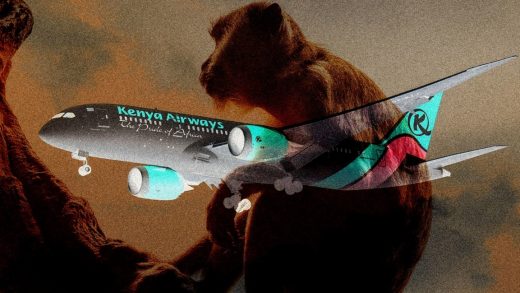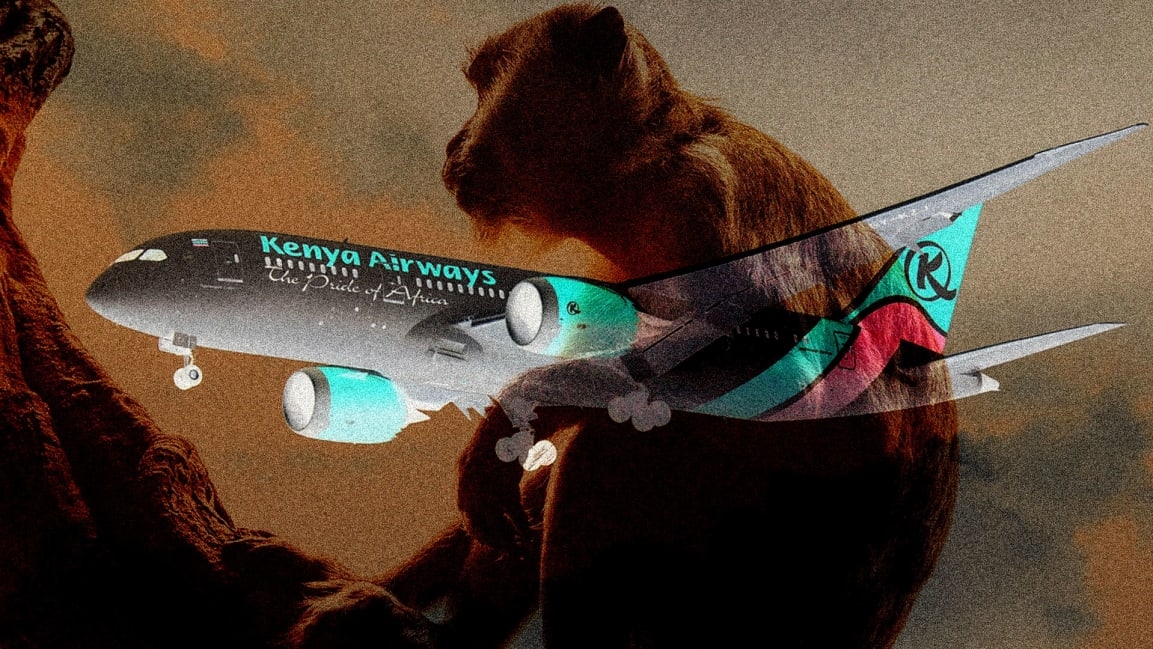No more monkey business for some airlines after horrific truck accident
After a truck carrying 100 monkeys was involved in an accident on a Pennsylvania highway, Kenya Airways said it will no longer fly macaques overseas when its contract with an undisclosed shipper expires this month, further limiting the supply of monkeys available for U.S. medical testing, according to the People for the Ethical Treatment of Animals (PETA).
Kenya Airways flew the Mauritanian monkeys to JFK in New York City before they boarded a truck that crashed en route to an approved animal quarantine facility on January 21. Three of the monkeys were euthanized during the escape, and all are accounted for, Centers for Disease Control and Prevention spokesperson Kristen Nordlund wrote in an email to Fast Company.
Because they are genetically similar to humans, monkeys have been used for medical research for more than a century, including testing the efficacy of the COVID-19 vaccine. (However, in 2015, NIH announced it would end its support for invasive research on chimpanzees.) Before the pandemic, monkeys were primarily imported from China and used for HIV research, according to Mark Lewis, CEO of Bioqual, a vaccine and medical testing company. Lewis’s company worked to test the Moderna COVID-19 vaccine on monkeys as part of the Food and Drug Administration (FDA) approval process. However, he now has a hard time finding monkeys because the pandemic caused China to stop exporting all animal products, including macaque monkeys, which he said can now fetch a price as high as $20,000 per animal. “The price has at least doubled over the last four years. Covid has changed everything,” he said, explaining that the United States does not produce enough monkeys domestically to keep up with demand.
Kenya Airways chairman Michael Joseph wrote that, as a conservationist, he was “horrified” by the monkey-escape incident, adding that the animals, which were bred for export, would no longer be brought to the United States by his company, marking a significant victory for the animal rights organization.
Numerous airlines have left the monkey business, confirming they do not ship primates for medical testing, with notable holdouts being Air France and Wamos Air, according to PETA vice president Alka Chandna. In an interview with Fast Company, Chandna said the FDA is wed to animal testing but that it is outdated and potentially dangerous to public health, citing the risk of monkey-to-human disease transmission. She said a bipartisan bill called the FDA Modernization Act, introduced by senators Cory Booker of New Jersey and Rand Paul of Kentucky, is meant to “unshackle the pharmaceutical industry from animal testing” and expedite the process of FDA approval.
The bill would not end animal testing entirely, but it would allow clinical trials in humans prior to animal testing. During COVID-19 vaccine trials, clinical testing on humans and animals was done concurrently, leading Chandna to believe that animal testing was not crucial to efficacy testing at all. “We are pushing the FDA to take this as a lesson learned from the tragedy of the pandemic to say we are going to let go of this paradigm of animal testing,” she said.
However for Lewis, testing in monkeys is necessary. “In terms of response, primates are the closest to humans that we have,” he said. “A lot of work is done in mice, but mice are not the best for looking at immune responses. They tend to, in many cases, give a false answer.”
Lewis said the monkeys are “used to their fullest extent” and are not liberated or sent to zoos following testing.
“It’s a pretty dark industry. Violent and cruel,” Chandna said, hypothesizing that airlines didn’t want their reputations sullied by association with the practice.
For Lewis, animal testing is part of public health. “We wouldn’t be where we are with the COVID vaccines without having done the primate testing in early 2020,” he said. “It helped us get an approved vaccine in nine months.”
Correction: An earlier version of this story incorrectly stated that 100 monkeys escaped during the accident. Only four escaped.
(32)



